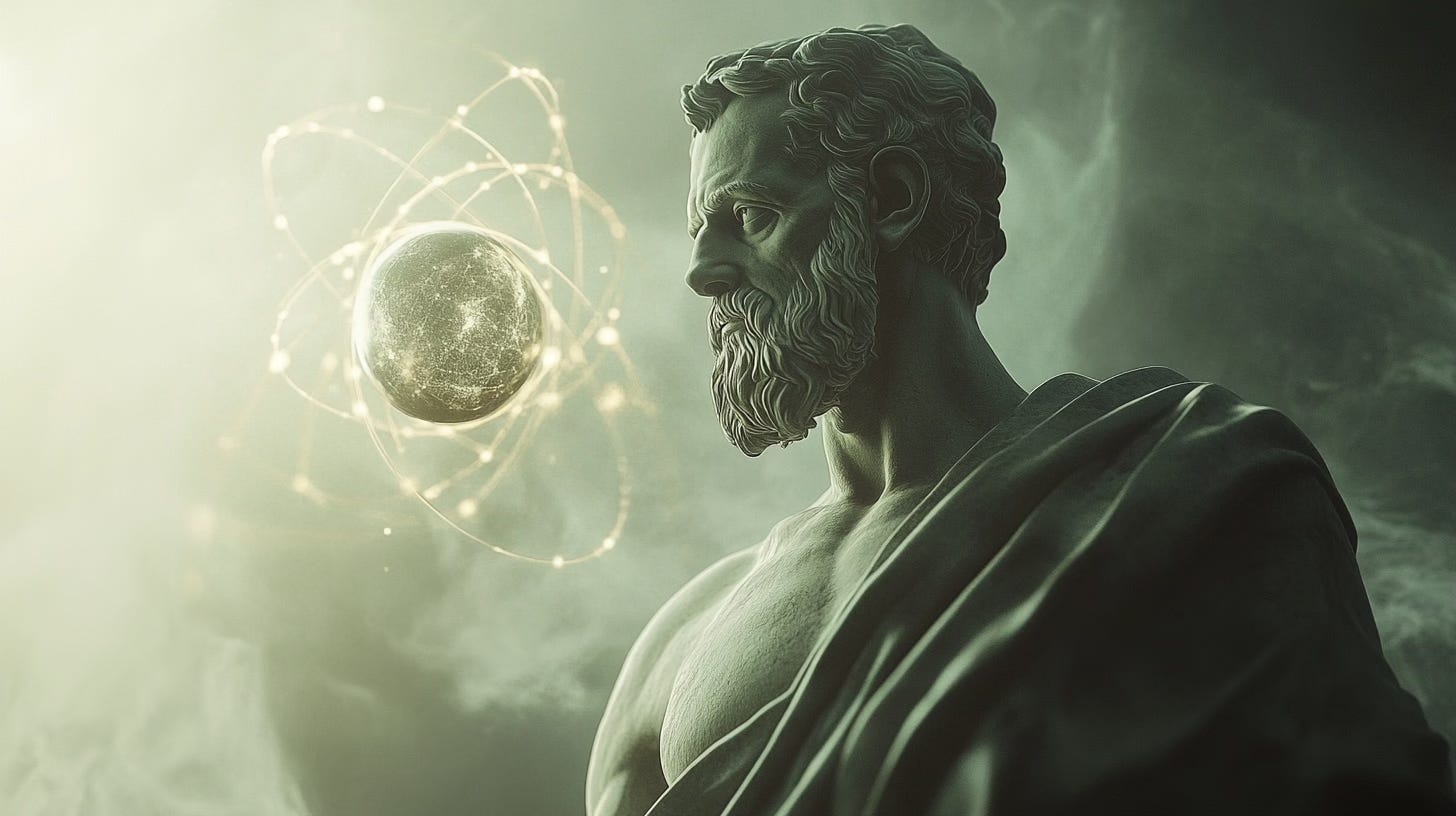For seven-hundred years, students of Epicurus began their study of his philosophy with physics. Epicurus believed that physics should be the baseline of any philosophy and that his insights into the universe were what his theories on ethics and how to live a good life were based.
But Epicurus was wrong. He was a brilliant thinker, but if you even got a “C” in high school physics you know vastly more about the properties of the natural world than Epicurus did. We won’t be spending much time on Epicurus’s physics for this reason. If we followed Epicurus’s advice to start with the physics and work our way toward the ethics, we’d have to discard it all because Epicurus’s physics is out of date and not much help in understanding our world.
Epicurus used the word ‘physics’ to mean roughly what we mean by the word “science.” But Epicurus was not a scientist. Science requires that you start with observations then make a hypothesis and test it in some way. If you can’t test it, it’s not science. Epicurus would have thought this was crazy. If you had to test every idea you had, how could you know anything for sure? He was right. The tools required to carry out experiments didn’t exist anywhere in his time.
For what he had to work with, Epicurus’s insights were impressive. But taken as a whole, his physics is a mixed bag. Some ideas are stunning in their insight and have stood the test of time (everything we see around us is made of indivisible particles that can be neither created nor destroyed) but there are also plenty of head slappers (the sun is only as big as it appears in the sky?!). We should grade on a curve and remind ourselves that Epicurus was born into a world where basically nothing about reality was understood and people relied on folktales and superstitions to guide their lives. This was exactly what he was hoping to counter with his physics. He wanted to understand how the world worked so that he could share his knowledge with others and that they would move away from superstition.
But he wasn’t concerned with knowledge for its own sake. You might think that Epicurus would be grateful for the chance to see the advances in knowledge that have been made since his death. I’m not so sure. I think that if Neil deGrasse Tyson could spend an afternoon with Epicurus, explaining the scientific method and everything it has accomplished, he would probably ask at the end of it all, what’s the point? Yes, he’d be happy to be set right on some of his mistakes, and he would appreciate how advances in medicine and farming have delivered millions of people from unnecessary pain, but our advanced science can’t give us what Epicurus was most after: freedom from fear.
It doesn’t matter that so many of Epicurus’s ideas about physics don’t hold up to scientific scrutiny, because that was never the point. Knowledge of the world is important, yes. But it’s a means to an end. The real reason to study physics is to free yourself from superstitions and feel better about your life. Science is value-neutral in a way that Epicurus would hate. Science reveals things that don’t make us happier. You’re probably better off not realizing that an asteroid has already wiped out most life in a massive extinction event and can do it again, or that the Sun (which is bigger than the Earth) will someday destroy the planet and all life on it. But both of these things are still true. Knowing this will probably end up making you more nervous. Epicurus would probably not approve of spreading this information around.
For Epicurus, physics and philosophy were one in the same. There was no reason to approach natural sciences and ethics separately. Both were good only if they did good. False ideas were ones that make people afraid. True ideas were ones that delivered ataraxia and made life more enjoyable regardless of objective truth. From a scientific perspective, this isn’t the best method for understanding and evaluating your ideas. But it’s a decent way of evaluating Epicurus and his beliefs. If the ideas Epicurus has about how to live your life are useful, then they are worth keeping. If they aren’t, don’t follow them. Use what you can to feel better and more secure in your life. If you’ve done that, you’ve gone a long way to uncovering what is truly worth knowing.
Ειρήνη και Ασφάλεια
Peace and Safety






Indeed! While Aristotle is often considered the Ancient Greek who most advanced scientific understanding, creating systems of taxonomy that are still used today, Epicurus had a number of insights which were much more accurate than the metaphysical systems of other schools, including the Peripatetics, Stoics, and especially the Academics.
Yes the details are wrong but I like the Epicurean physics for its basic principles which were maybe the most correct in ancient times: Uncuttables ( atoms, today bosons, electrons, quantum fields ), biological evolution, laws of nature as behaviour of atoms ( movement downwards = gravity ) movement general for nuclear power, electromagnetic, emergent properties in compounds, no magic powers, no life after death, eternal space/ matter / cosmoi. Limits of Life and attributes ( Pleasure/Pain), trust in empirical facts and sense data ( today with technical advanced methods) and so on…